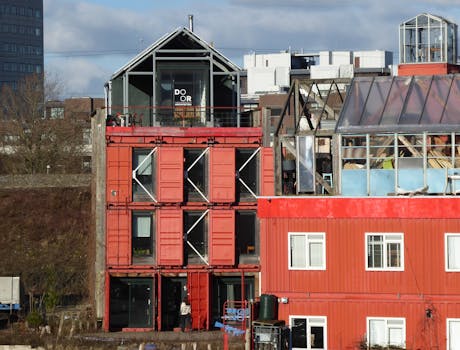
Sustainable Cities: How Europe is Shaping Eco-Friendly Lifestyles by 2025
Sustainable Cities are becoming increasingly important as the world grapples with the challenges of climate change, pollution, and resource depletion. Sustainable Cities in Europe are at the forefront of this movement, with many cities implementing innovative solutions and policies to promote eco-friendly lifestyles. In this article, we will explore how Europe is shaping the future of sustainable cities and what we can expect by 2025.
Introduction to Sustainable Cities
Sustainable cities are urban areas that are designed to minimize their impact on the environment, while also improving the quality of life for their citizens. This can include initiatives such as renewable energy, green transportation, and sustainable waste management. Sustainable Cities in Europe are leading the way in this field, with many cities investing heavily in sustainable infrastructure and technologies.
European Sustainable City Initiatives
There are many examples of sustainable city initiatives in Europe, including:
- Stockholm’s Congestion Tax, which reduces traffic congestion and air pollution in the city center.
- Copenhagen’s carbon-neutral district heating system, which provides heat to over 98% of the city’s buildings.
- Barcelona’s Superblock program, which prioritizes pedestrian-friendly streets and reduces traffic congestion.
- Vienna’s smart traffic management system, which optimizes traffic flow and reduces congestion.
Benefits of Sustainable Cities
The benefits of sustainable cities are numerous, including:
- Improved air and water quality, resulting in better public health.
- Increased energy efficiency, reducing greenhouse gas emissions and mitigating climate change.
- Enhanced quality of life, with more green spaces, pedestrian-friendly streets, and community engagement.
- Support for local economies, with opportunities for sustainable businesses and job creation.
Challenges and Future Directions
While European cities are making significant progress in sustainable development, there are still many challenges to overcome. These include:
- Financing sustainable infrastructure and technologies.
- Engaging citizens and stakeholders in sustainable city planning.
- Addressing social and economic inequalities in sustainable city development.
- Integrating sustainable city planning with regional and national policies.
By 2025, we can expect to see even more innovative solutions and policies in European sustainable cities. These may include:
- Increased use of renewable energy sources, such as solar and wind power.
- Expansion of green transportation systems, including electric and self-driving vehicles.
- Implementation of circular economy principles, reducing waste and promoting recycling.
- Greater emphasis on community engagement and participatory governance in sustainable city planning.




